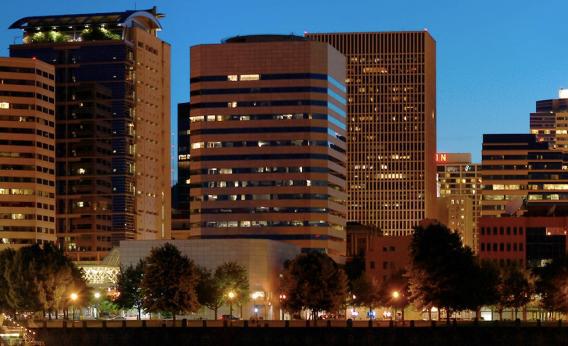I’ve been visiting Portland, Oreogn for the first time over the past few days. As a land use junkie, I feel terrible about not having been here previously since the metro area is known for its unusual practices in this regard. In particular, alongside the various zoning restrictions you see everywhere in America, Portland has an “urban growth boundary” designed to prevent the endless expansion of suburban sprawl. So has this turned Portland into a super-sized version of “The Rent Is Too Damn High” where there’s just no affordability in any direction? Or has Portland adopted enougn pro-growth, pro-density policies inside the urban growth to keep things in check?
Well the good news is that anti-sprawl policies haven’t stopped people from moving to Portland:
The metro area’s population has grown faster than the nation as a whole, and faster than the larger state of Oregon. And for the past thirty years, the core municipality of Portland has grown faster than the overall American population. That’s not to say land use policies are perfect here. But from a “market suburbanist” perspective one would have expected Portland’s growth situation to be unusually bad for a coastal city. In fact in percentage terms the Portland MSA has been growing faster than San Francisco, San Jose, Seattle, New York, or Boston (obviously from a smaller base) and even in aggregate population terms it’s growing faster than San Francisco, San Jose, or Boston.
Still despite population growth, Portland looks pretty bad in affordability terms. For a smallish city with relatively little traffic congestion to make anti-sprawl policies work, it’s really going to need to double-down on pro-growth policies inside the frontier. Even within the Portland city limits there seems to be plenty of land set aside for the exclusive development of single-family homes while elsewhere in the city a mania for central planning has led to minimum density requirements. Especially when you hold large swathes of land completely off limits for development, it becomes very costly to prevent people from building what there’s demand for where development is allowed.
At the end of the day, though, the growth numbers don’t lie and Greater Portland—unlike a lot of its coastal peers—is adding population pretty fast and not just gentrifying.
